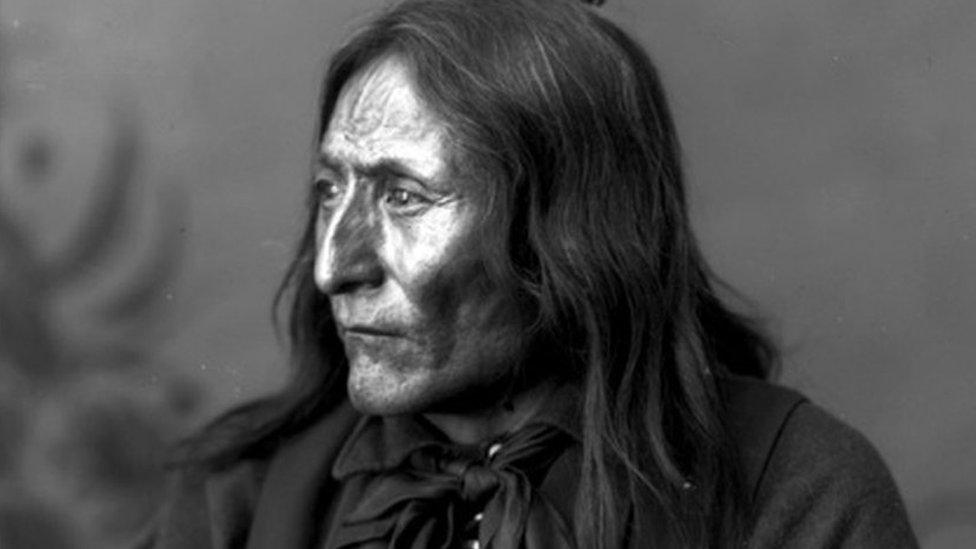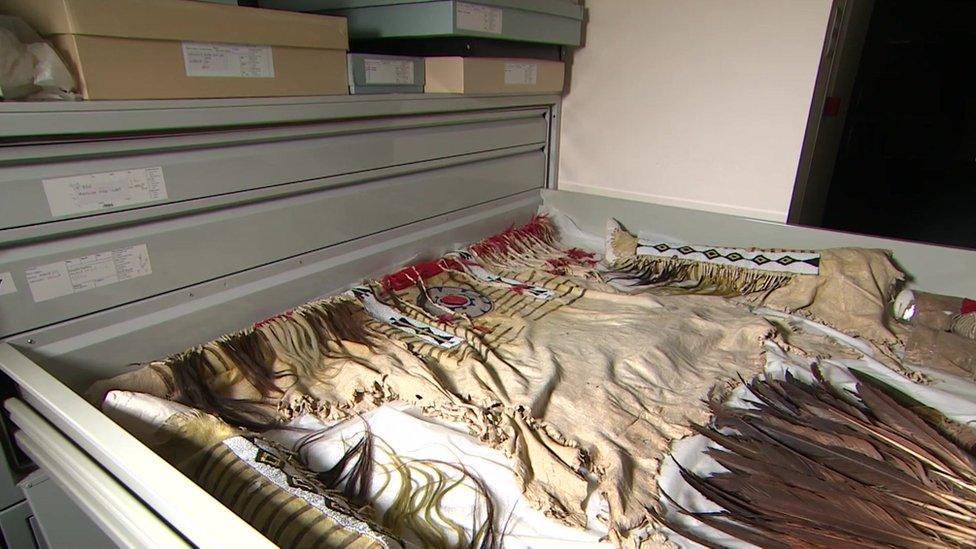Return of artefacts to Canada 'the right thing'
- Published

Chief Crowfoot played a key role in the signing of Treaty 7 on the site of the Blackfoot Crossing Historical Park in 1877. He believed it would help protect Blackfoot lands and traditional ways of life but the terms of the treaty were broken by the Canadian administration
A museum has agreed to hand a 19th Century tribal leader's regalia back to his Canadian descendants.
The Crowfoot regalia, which belonged to Chief Crowfoot of the Blackfoot nation, has been at the Royal Albert Memorial Museum in Exeter for over 100 years.
The collection includes his deer-hide necklace, a symbol of bravery and status, as well as his hardwood bow and a deerskin shirt and leggings.
An Exeter councillor said returning the items was the "right thing to do".
Exeter City Council, which owns the museum, has agreed to return the artefacts to the Siksika Nation in Alberta, who will lend the regalia to the Blackfoot Crossing Historical Park (BCHP).
The park is of great spiritual importance to the Siksika Nation and is also where Chief Crowfoot died.

The regalia is currently stored in a drawer at the museum in Exeter
The museum bought the Crowfoot regalia for £10 from the family of British policeman Sir Cecil Denny in 1904.
Sir Cecil was a friend of the chief but it remains unclear how he came to own the regalia.
In 2015, the Blackfoot Crossing Historical Park made a request for the return of the items and earlier this year, the museum approached Chief Ouray Crowfoot, chief of the Siksika Nation, about repatriating them.
Exeter councillor Rachel Sutton said: "Giving back Crowfoot's regalia returns control to the Siksika Nation over their cultural identity, dignity and authority and is the right thing to do."
Chief Ouray Crowfoot will visit Exeter and an official ceremony to hand over the regalia will take place once coronavirus restrictions have been lifted.
He said: "As a direct descendant of the Great Chief Crowfoot, I am pleased that the regalia will be returned to its rightful home, the Siksika Nation.
"The returning of this regalia will contribute to healing and reconciliation and the Great Chief's spirit can rest easy once all his belongings are gathered from the four corners of Mother Earth and returned back to his home."